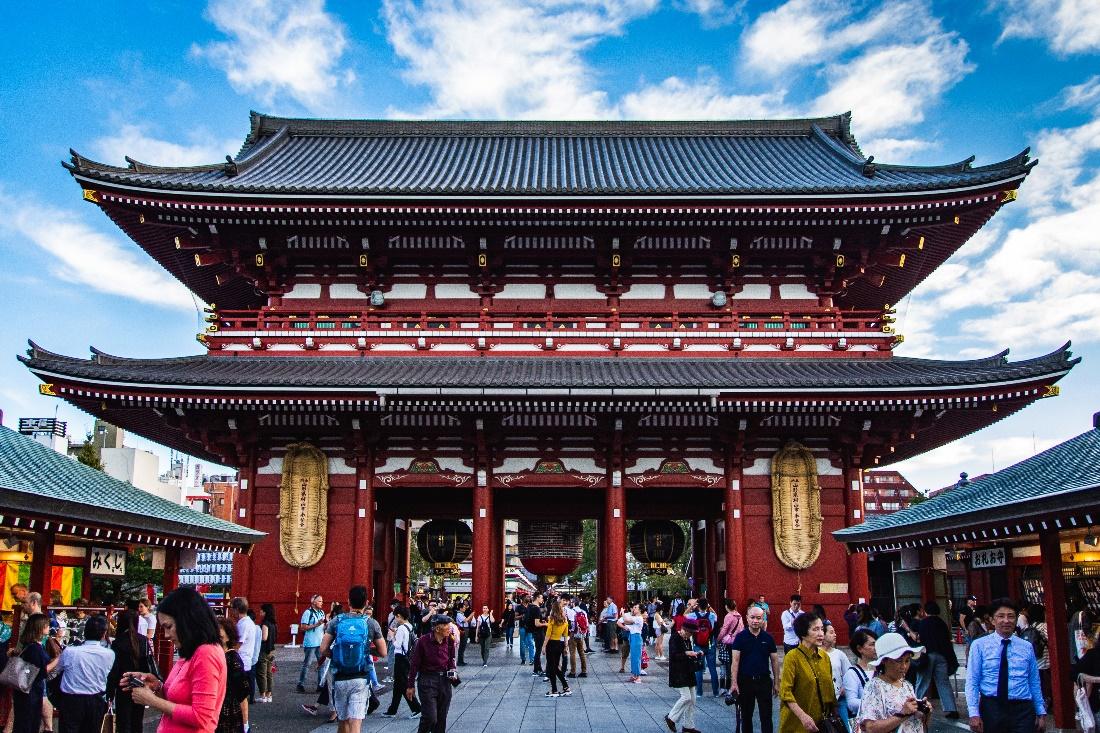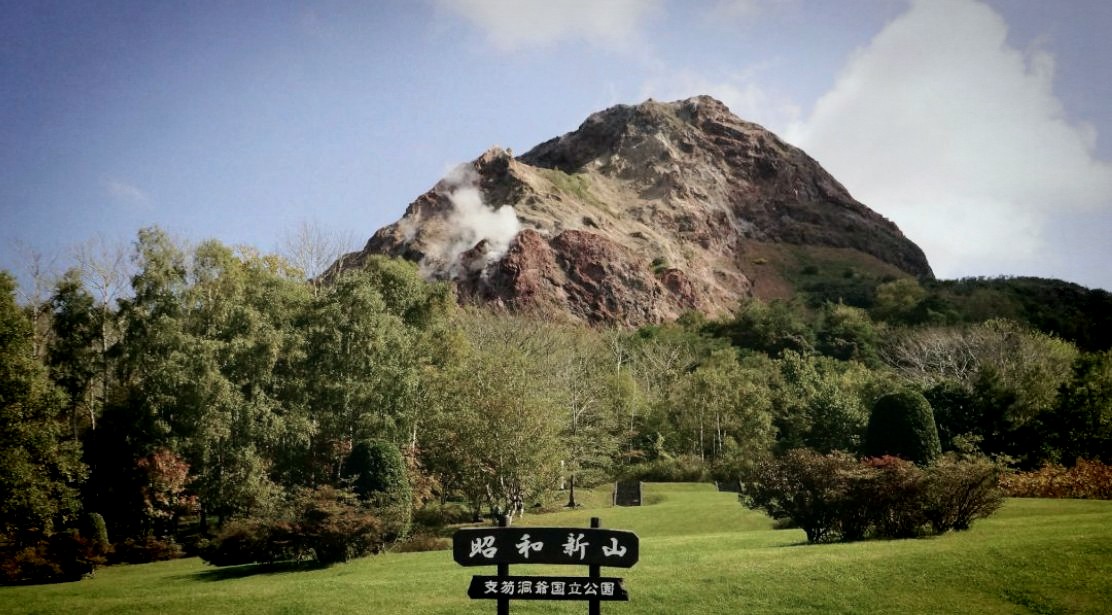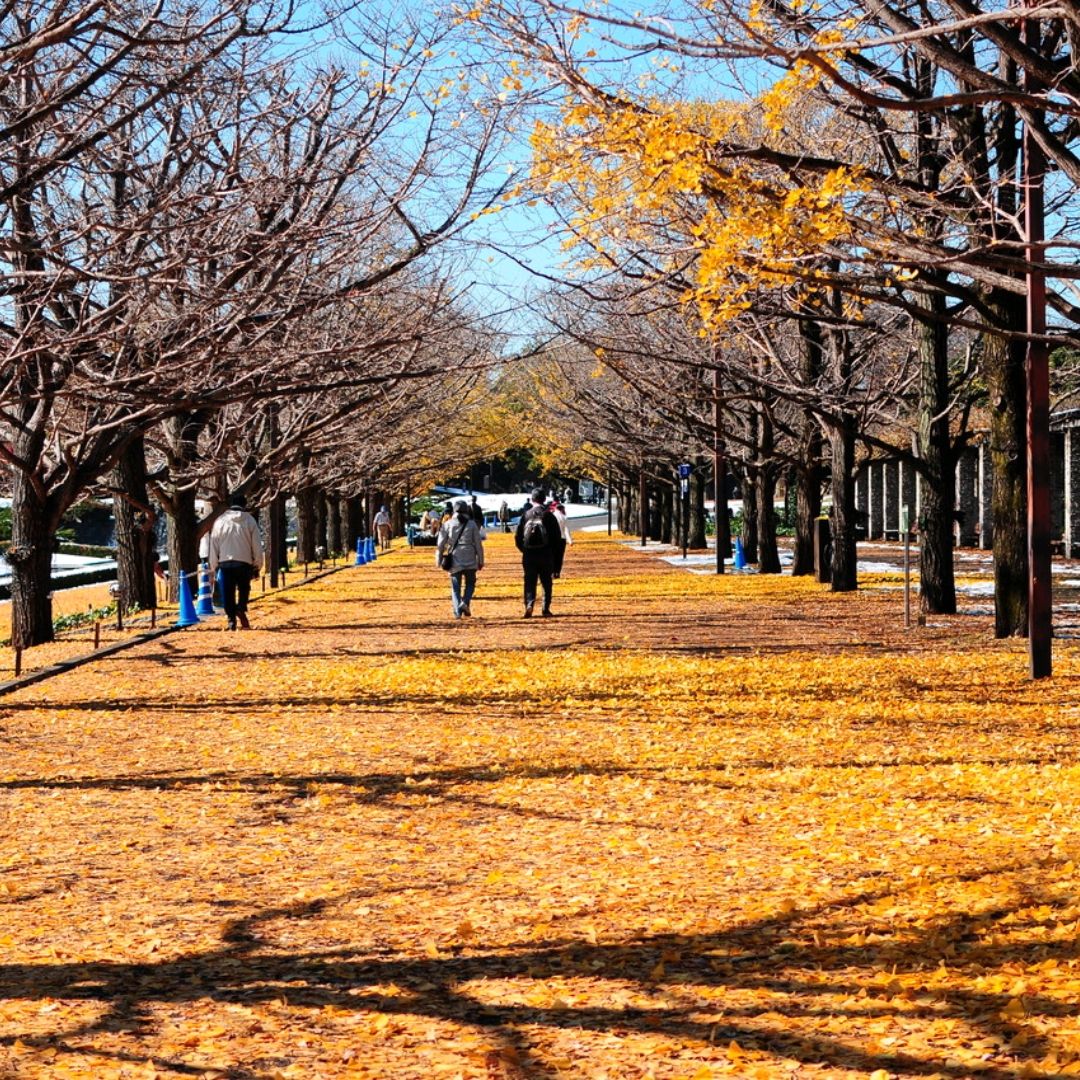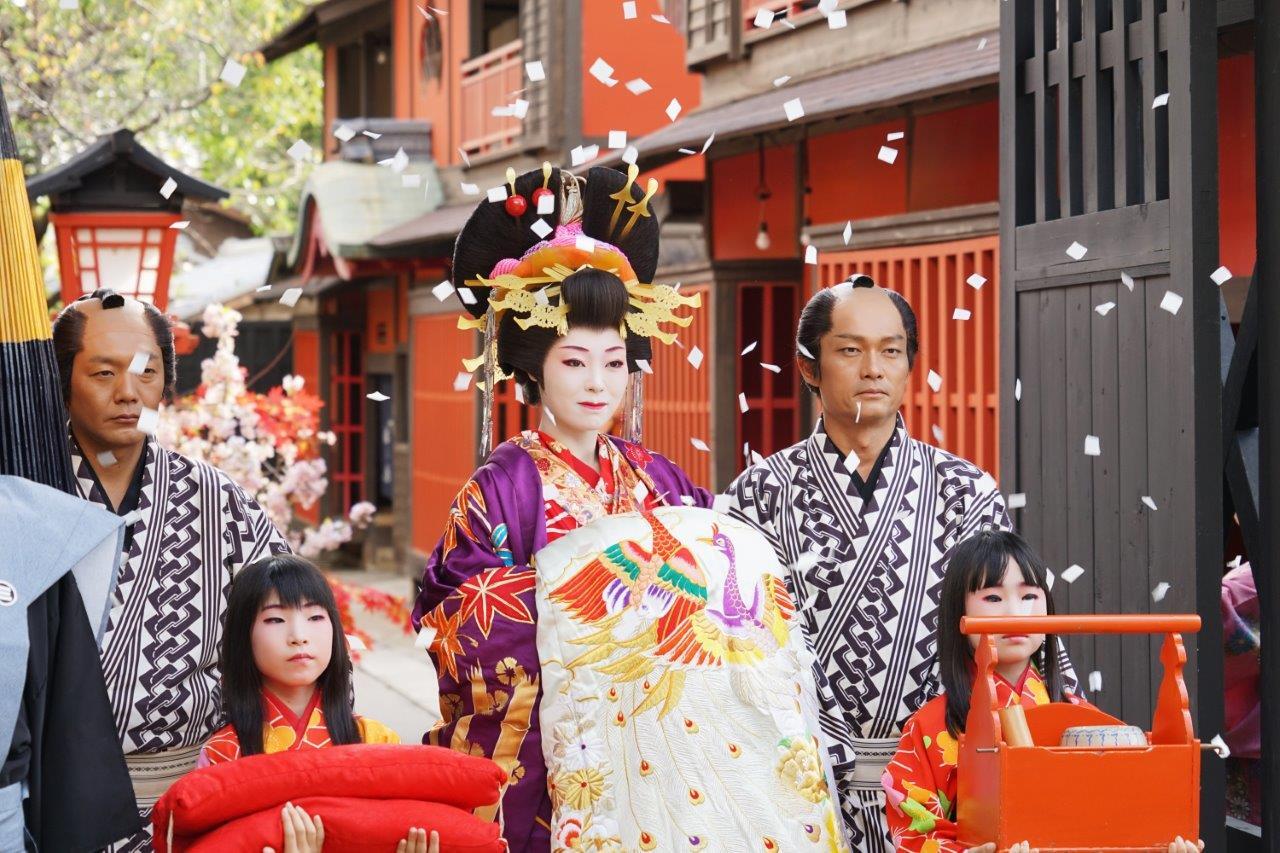Are you planning to visit Japan in 2024? If so, you might want to know when the public holidays are and how they can affect your travel plans. Japan has 16 national holidays throughout the year, and some of them are celebrated with festivals, ceremonies, or special events. In this article, we will introduce you to the public holidays in Japan in 2024 and give you some tips on how to enjoy them.

Table of Japanese Public Holidays in 2024
| Date | Holiday Name | Description |
| January 1 | New Year's Day | Marks the beginning of a new year according to the Gregorian calendar. Many people visit shrines or temples to pray for good luck and health in the new year. Traditional food such as mochi, ozōni, and osechi-ryōri are enjoyed. |
| Second Monday of January | Coming of Age Day | Celebrates young people who turn 20 years old in the previous or current year, signifying their entry into adulthood. Many wear formal or traditional clothes and attend ceremonies held by local governments or schools. |
| February 11 | National Foundation Day | Commemorates the founding of Japan by Emperor Jimmu. People display the national flag, sing the national anthem, and some public buildings are illuminated with national colors. |
| February 23 | The Emperor's Birthday | Celebrates the birthday of the current emperor, Emperor Naruhito. The Imperial Palace in Tokyo opens its gates to the public, and cultural events related to the imperial family take place. |
| Around March 20 or 21 | Vernal Equinox Day | Marks the arrival of spring and the equal length of day and night. It's a day to honor nature and appreciate its beauty. Festivals such as Hina Matsuri and Hinamatsuri are celebrated. |
| April 29 | Showa Day | Honors the birthday of Emperor Showa. People reflect on the history and culture of Japan during the Showa period. |
| May 3 | Constitution Memorial Day | Commemorates the promulgation of the current constitution of Japan. People attend lectures on constitutional issues or visit the National Diet Building in Tokyo. |
| May 4 | Greenery Day | Celebrates nature and its blessings. Many people enjoy outdoor activities and visit botanical gardens or zoos. |
| May 5 | Children's Day | Honors children and their happiness. Families display koinobori outside their homes and give their children traditional treats. |
| July 15 | Marine Day | Celebrates the ocean and its importance for Japan. People go to the beach, enjoy water sports, and visit aquariums or maritime museums. |
| August 11 | Mountain Day | Celebrates the mountains of Japan. People go to the mountains, enjoy hiking or climbing, and visit national parks or mountain resorts. |
| September 16 | Respect for the Aged Day | Honors the elderly and their contributions to society. Many visit their elderly relatives or friends and give gifts. |
| Around September 22 or 23 | Autumnal Equinox Day | Marks the arrival of autumn and the equal length of day and night. It's a day to honor ancestors and remember the deceased. Festivals like Tsukimi and Jidai Matsuri are celebrated. |
| October 14 | Health and Sports Day | Promotes health and physical fitness. Commemorates the opening of the Tokyo Olympics in 1964. People participate in sports or exercise activities. |
| November 3 | Culture Day | Celebrates culture and art. Commemorates the promulgation of the Meiji Constitution. Cultural events like the Order of Culture Awards take place, and museums or galleries that display various forms of culture and art are popular destinations. |
| November 23 | Labor Thanksgiving Day | Expresses gratitude to workers and their labor rights. Celebrates human rights and peace. People thank their co-workers or employers, and events promoting human rights or peace are held. |
Japanese Holidays - Explored!

New Year's Day - January 1
New Year's Day is the most important holiday in Japan, and it marks the beginning of a new year according to the Gregorian calendar. On this day, many people visit shrines or temples to pray for good luck and health in the new year. Some of the most popular places to visit are Meiji Shrine in Tokyo, Fushimi Inari Shrine in Kyoto, and Itsukushima Shrine in Hiroshima. You can also enjoy traditional food such as mochi (rice cakes), ozōni (soup with mochi), and osechi-ryōri (special dishes prepared for the new year).
Coming of Age Day - The Second Monday of January
Coming of Age Day is a holiday that celebrates young people who turn 20 years old in the previous or current year. It is a rite of passage that signifies their entry into adulthood and their social responsibilities. On this day, many young people wear formal or traditional clothes, such as suits, dresses, or kimono, and attend ceremonies held by their local governments or schools. You can see many young women wearing furisode, a type of kimono with long sleeves that indicate their unmarried status.
National Foundation Day - February 11
National Foundation Day is a holiday that commemorates the founding of Japan by Emperor Jimmu, the legendary first emperor of Japan. According to mythology, he ascended to the throne on this day in 660 BC. On this day, many people display the national flag and sing the national anthem. Some public buildings and monuments are also illuminated with the national colors of red and white. You can visit some historical sites related to Emperor Jimmu, such as Kashihara Shrine in Nara or Katori Shrine in Chiba.
The Emperor's Birthday - February 23
The Emperor's Birthday is a holiday that celebrates the birthday of the current emperor of Japan, Emperor Naruhito. He was born on February 23, 1960, and he ascended to the throne on May 1, 2019, following the abdication of his father, Emperor Akihito. On this day, the Imperial Palace in Tokyo opens its gates to the public, and people can enter the grounds and see the emperor and his family greet them from a balcony. You can also enjoy some cultural events and exhibitions related to the imperial family and their history.
Vernal Equinox Day - Around March 20 or 21
Vernal Equinox Day is a holiday that marks the arrival of spring and the equal length of day and night. It is also a day to honor nature and appreciate its beauty. Many people visit parks or gardens to see the cherry blossoms or other flowers that bloom in spring. You can also join some festivals or events that celebrate spring, such as Hina Matsuri (Doll Festival) on March 3 or Hinamatsuri (Peach Blossom Festival) on March 14.
Showa Day - April 29
Showa Day is a holiday that honors the birthday of Emperor Showa, who reigned from 1926 to 1989. He was the longest-reigning emperor in Japanese history, and he witnessed many changes and challenges in Japan during his era. On this day, many people reflect on the history and culture of Japan during the Showa period. You can visit some museums or landmarks that showcase the Showa era, such as Showa Memorial Park in Tokyo or Showa Kinen Museum in Gunma.
Constitution Memorial Day - May 3
Constitution Memorial Day is a holiday that commemorates the promulgation of the current constitution of Japan on May 3, 1947. It is also a day to respect the law and human rights. On this day, many people attend lectures or symposiums on constitutional issues or visit the National Diet Building in Tokyo, where the constitution was enacted. You can also learn more about the history and principles of the constitution at some museums or libraries, such as Constitution Memorial Hall in Tokyo or Constitutional Government Memorial Hall in Kanagawa.
Greenery Day - May 4
Greenery Day is a holiday that celebrates nature and its blessings. It is also a day to express gratitude to Emperor Showa, who loved plants and animals. On this day, many people enjoy outdoor activities such as hiking, camping, or picnicking. You can also visit some botanical gardens or zoos that feature various plants and animals, such as Koishikawa Botanical Garden in Tokyo or Ueno Zoo in Tokyo.
Children's Day - May 5
Children's Day is a holiday that honors children and their happiness. It is also a day to wish for their healthy growth and development. On this day, many families display koinobori (carp-shaped windsocks) outside their homes or on poles, as carp symbolize strength and perseverance. They also give their children kashiwa-mochi (rice cakes wrapped in oak leaves) or chimaki (rice dumplings wrapped in bamboo leaves), as oak and bamboo represent longevity and vitality. You can also see some events or exhibitions that feature children's culture or art, such as Kodomo no Hi Festival in Tokyo or Children's Art Exhibition in Osaka.
Marine Day - July 15
Marine Day is a holiday that celebrates the ocean and its importance for Japan, an island nation. It is also a day to appreciate the marine resources and environment. On this day, many people go to the beach or enjoy water sports or activities. You can also visit some aquariums or maritime museums that showcase the marine life or history of Japan, such as Churaumi Aquarium in Okinawa or Yokohama Maritime Museum in Kanagawa.
Mountain Day - August 11

Mountain Day is a holiday that celebrates the mountains and their significance for Japan, a mountainous country. It is also a day to appreciate the natural scenery and environment. On this day, many people go to the mountains or enjoy hiking or climbing. You can also visit some national parks or mountain resorts that offer stunning views or attractions, such as Fuji-Hakone-Izu National Park in Yamanashi or Zao Onsen in Yamagata.
Respect for the Aged Day - September 16
Respect for the Aged Day is a holiday that honors the elderly and their contributions to society. It is also a day to express gratitude and respect to them. On this day, many people visit their grandparents or other elderly relatives or friends, and give them gifts or cards. You can also join some events or activities that celebrate the elderly or their culture, such as Keiro no Hi Festival in Tokyo or Silver Week in Nagoya.
Autumnal Equinox Day - Around September 22 or 23

Autumnal Equinox Day is a holiday that marks the arrival of autumn and the equal length of day and night. It is also a day to honor the ancestors and remember the deceased. Many people visit graves or temples to pray for their departed loved ones. You can also enjoy the autumn foliage or other seasonal fruits or vegetables that are harvested in autumn. You can also join some festivals or events that celebrate autumn, such as Tsukimi (Moon Viewing) on September 13 or Jidai Matsuri (Festival of the Ages) on October 22.
Health and Sports Day - October 14
Health and Sports Day is a holiday that promotes health and physical fitness. It is also a day to commemorate the opening of the Tokyo Olympics in 1964, the first Olympics held in Asia. On this day, many people participate in sports or exercise activities, such as running, cycling, or yoga. You can also watch some sports events or competitions that are held on this day, such as Ekiden (long-distance relay race) or Rugby World Cup.
Culture Day - November 3

Culture Day is a holiday that celebrates culture and art. It is also a day to commemorate the promulgation of the Meiji Constitution in 1889, the first constitution of modern Japan. On this day, many cultural events or ceremonies are held, such as the Order of Culture Awards, which are given to people who have made outstanding contributions to culture and art. You can also visit some museums or galleries that display various forms of culture and art, such as Tokyo National Museum or Kyoto National Museum.
Labor Thanksgiving Day - November 23
Labor Thanksgiving Day is a holiday that expresses gratitude to workers and their labor rights. It is also a day to celebrate human rights and peace. On this day, many people thank their co-workers or employers for their work or support. You can also join some events or activities that promote human rights or peace, such as Human Rights Week from November 23 to December 10 or Peace Boat Cruise.
Visit Japan in 2024!
These are the public holidays in Japan in 2024. As you can see, they are not only days off from work or school, but also opportunities to learn about and experience the culture and history of Japan. We hope this article helps you plan your trip to Japan in 2024 and enjoy its public holidays.
Japan Public Holiday
How many national holidays are there in Japan in 2024?
There are 16 national holidays in 2024.What is the significance of New Year's Day in Japan?
New Year's Day marks the start of a new year. People visit shrines or temples, pray for good luck, and enjoy traditional food such as mochi and osechi-ryōri.When do young people in Japan celebrate their entry into adulthood?
On the Coming of Age Day, which is the second Monday of January.What do people in Japan do on National Foundation Day?
They commemorate the founding of Japan by Emperor Jimmu, display the national flag, sing the national anthem, and some buildings are illuminated with national colors.How do Japanese people celebrate the Emperor's Birthday?
They celebrate the birthday of the current emperor, Emperor Naruhito. The Imperial Palace in Tokyo opens to the public and cultural events related to the imperial family take place.What's special about Vernal Equinox Day in Japan?
It marks the arrival of spring and the equal length of day and night. People honor nature, appreciate its beauty, and festivals like Hina Matsuri are celebrated.How is Children's Day celebrated in Japan?
Families display koinobori (carp windsocks) outside their homes and give children traditional treats.What is the purpose of Marine Day in Japan?
It celebrates the ocean's significance to Japan, an island nation. People visit the beach, partake in water sports, and visit aquariums or maritime museums.How do the Japanese commemorate Respect for the Aged Day?
It honors the elderly and their societal contributions. Many visit their elderly relatives or friends and give gifts.What activities are popular on Health and Sports Day?
People participate in sports or exercise activities. The day commemorates the opening of the Tokyo Olympics in 1964.Why is Culture Day significant in Japan?
It celebrates culture and art and commemorates the promulgation of the Meiji Constitution. Cultural events like the Order of Culture Awards are held.What does Labor Thanksgiving Day represent?
It expresses gratitude to workers and their rights and celebrates human rights and peace.
